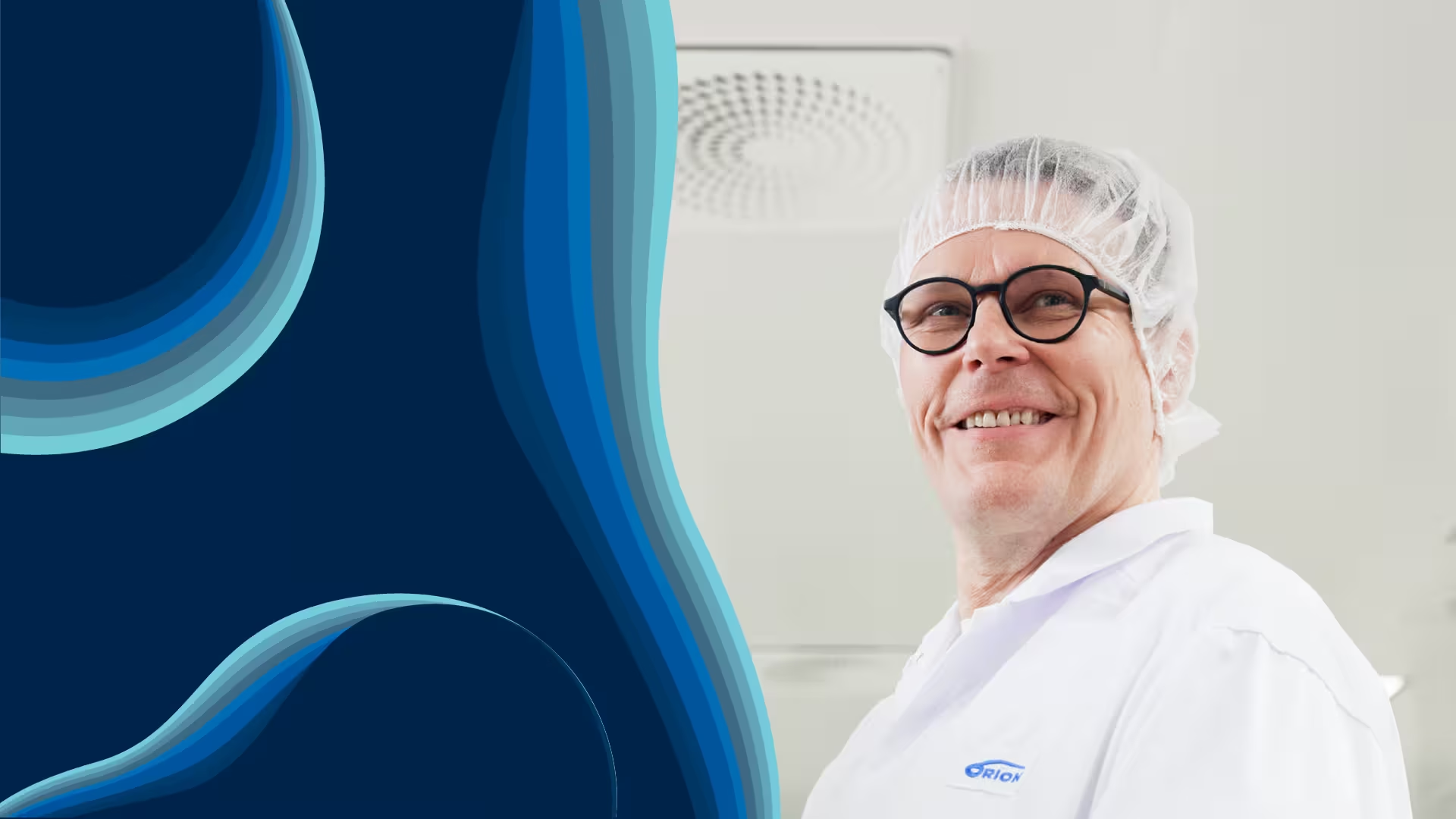Orion currently has around 30 dogs at the Turku animal facility. Proper care for the animals is a significant aspect of Orion’s responsible medical research, and our well-trained staff takes the best possible care of the dogs.
When the research is over, rehoming the dogs provides an opportunity to enhance the well-being of both the animals and the people working with them.
“The animals are also doing well at Orion, but rehoming offers the opportunity for a different kind of life,” says Outi Vaarala, Orion’s SVP, Innovative Medicines & R&D.
The rehoming project was initiated by Orionees
In 2022, Orion piloted rehoming with two Beagle dogs, and following the successful pilot, a total of 18 dogs have now been rehomed with the help of a partner. Most recently, Pena, Utu, and Putte left for their new homes in early autumn of 2024, followed by Tipu and Tuire at the turn of the year.
Rehoming the experimental dogs in Turku was a long-time dream for the Orionees responsible for animal welfare. Rehoming is also an investment in the well-being of the staff working with the animals.
The dogs are healthy and fit, and they have the possibility to experience life as pets. Both Finnish national law and EU legislation support the rehoming of healthy laboratory animals.
How does rehoming happen in practice?
Rehoming refers to a change in location for an animal that has previously been used or intended to be used for scientific research. The new location becomes the animal’s lifelong home, tailored to its individual needs as a pet.
Before looking for a new home, the dogs to be rehomed undergo a 6–8-week socialization training program, which includes, among other things, getting used to wearing a collar and a leash, new sounds, and learning to come to the caregiver when called.
“The programme is continuously being improved as each rehomed group brings new information about the dogs and their training needs,” says Vaarala.
The health, nature, and temperament of the dogs are assessed before starting the socialization process. Animal caregivers present suitable dogs for rehoming to our veterinarian, and ultimately, the veterinarian, caregivers, and the Animal Welfare Body make a joint decision on whether the dogs are suitable for rehoming.
“The most significant aspect of rehoming is providing a loving lifelong home for the dog.”
“It is important that the receiving home recognizes that these are former experimental dogs. Although all of Orion’s dogs are healthy and have adapted very well to their new homes, it is essential to understand their potential special needs. The most significant aspect of rehoming is providing a loving lifelong home for the dog,” Vaarala reminds.
Animal studies are an essential part of medical research
“Many physiological phenomena and disease processes can only be reliably studied through human or animal experiments. The law and authorities require animal studies to be conducted before a drug candidate can be taken to human trials. Additionally, Orion develops medicines for animals as well,” says Outi Vaarala.
Orion uses animals in medical research only when it is necessary. If there are no alternatives to animal studies, Orion is committed to conducting animal research responsibly. Orion complies with the legal requirements for animal research and the principles of international ethical practices for laboratory animals.
Seeking to improve the way research is conducted, Orion is involved in the EU-coordinated VICT3R project, which aims to reduce the number of experimental animals needed in the future through virtual control groups. Pharmaceutical companies and research institutes involved in the project are building a database that could potentially replace control animal groups with data-based methods in the future.
Read more about Orion’s principles of responsible animal research.











